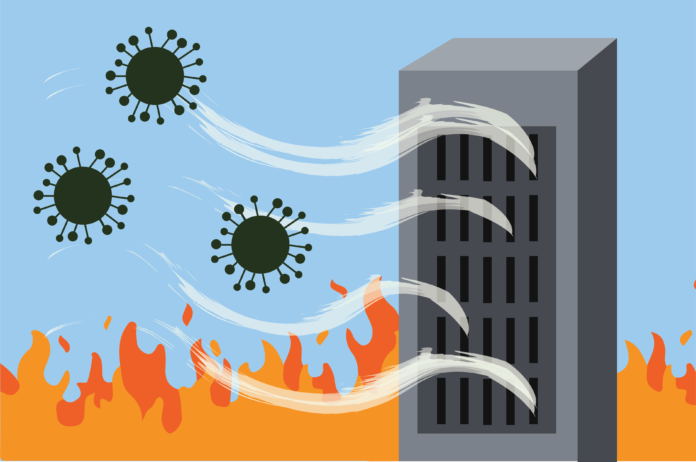150 eighth grade students given the opportunity to learn about air quality and build air purifiers
By AARYA GUPTA — science@theaggie.org
Science teachers at Rio Tierra Junior High School and researchers at the UC Davis Energy and Efficiency Institute partnered together to deliver a two-day lesson on air quality to about 150 eighth-grade students, according to an article published by UC Davis.
“This partnership came about after talking with my friend, Theresa Pistochini, regarding concerns I had with ventilation in my classroom,” science teacher at Rio Tierra Junior High School Amber Mitchell said via email. “I decided to pursue this partnership because I have been following Theresa’s research for years, and consider her an expert source for help and information.”
Pistochini is the Co-Director of Engineering at the UC Davis Energy Efficiency Institute and the lead for this project.
“Connecting K-12 students with university students and researchers[,] students learn about potential future education and career opportunities they may have not otherwise thought about,” Pistochini said via email. “Often when students think about engineering[,] they generally think about opportunities like studying cars, aircraft, and space, and not necessarily about buildings, energy efficiency, and the environment.”
Mitchell said that the lesson consisted of a “guided presentation by researchers at UC Davis.”
“Students learned about indoor and outdoor pollutants, health effects, air quality sensors, ventilation and filtration, and how to build a low cost air filter with a box fan and MERV13 filters,” Pistochini said.
The presentation was followed by the students having the opportunity to engage in a hands-on learning experience.
“The students explored different types of filters, and determined which filters would be best based on their characteristics,” Mitchell said. “The students built an efficient air purifier, and each system was delivered to a different room on campus.”
Mitchell emphasized the importance of her students learning about air quality.
“It is important for K-12 students to have these experiences because it relates what we are doing in the classroom with what is happening in the real world,” Mitchell said. “They are living through the pandemic and the horrific wildfire seasons. They understand that they have some control over the air they breathe, and this project showed them a way to directly influence the air in the classrooms.”
Camille Kirk, the UC Davis director of sustainability and campus sustainability planner, echoed similar sentiments.
“It is critical to engage K-12 students in projects related to sustainability for the same reasons it is critical to engage college students—these kinds of opportunities offer students a chance to learn more about sustainability science, social science, legal and humanistic approaches to global challenges,” Kirk said via email. “Students are the future and they will be the most impacted by climate change and other major social and environmental challenges.”
The Sacramento Municipal Utility District (SMUD) Sustainable Community Program provided funding to the UC Davis Sustainable Campus, Sustainable Cities Initiative, which funded this project, according to the article published by UC Davis.
Director of Sustainable Communities at SMUD Jose Bodipo-Memba said via email that SMUD is “proud of its long and successful history of partnerships with UC Davis.”
“As a community owned nonprofit, it is our responsibility to ensure that all communities are holistically sustainable, with the ability to provide a healthy environment, economic opportunities, safe mobility options, and access to social services,” Bodipo-Memba said. “The two-day air quality lesson made clear to students that they can improve indoor air quality at home and in the classroom. We hope this foundational knowledge will also inspire them to do even more.”
Written by: Aarya Gupta — science@theaggie.org









